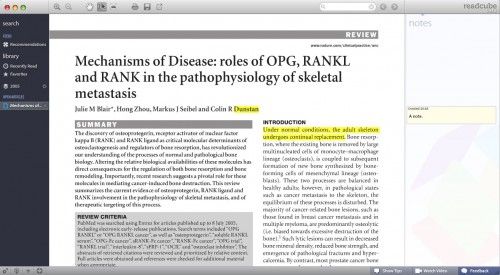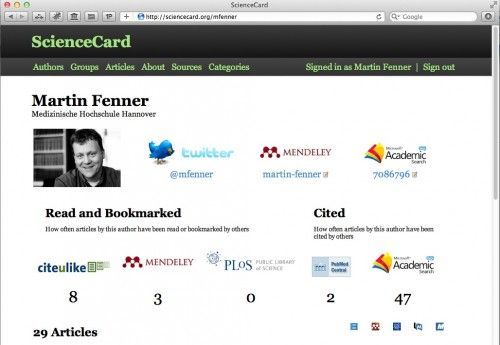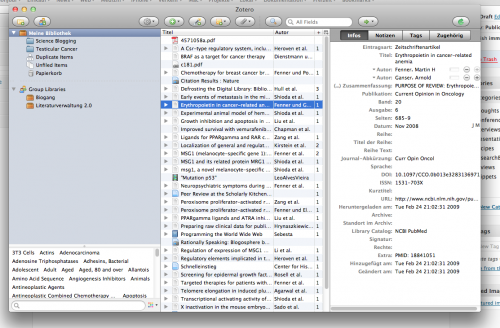
Last week I attended the Transforming Scholarly Communication workshop in Cambridge, Massachusetts.

Last week I attended the Transforming Scholarly Communication workshop in Cambridge, Massachusetts.

Reinventing Discovery, the book by Michael Nielsen we all have been waiting for, has finally been published on Friday. Today I flew to Boston for the Microsoft Research eScience Workshop: Transforming Scholarly Communication, and reading the book on the plane was the perfect preparation for the workshop. Michael says in the book: I wrote this book with the goal of lightning an almighty fire under the scientific community.
Earlier this week Alex Ball and Monica Duke from the Digital Curation Centre released the how-to guide Cite Datasets and Link to Publications. The guide is highly recommended reading for everyone interested in data citation.
The shortDOI service was launched by the International DOI Foundation (IDF) in May 2010. The service creates short versions of the often long DOIs, e.g. 10/dvq instead of 10.1093/hmg/ddp202 – written as URL this would be http://doi.org/dvq instead of http://doi.org/10.1093/hmg/ddp202. shortDOIs started as a CrossRef Labs project in 2009 and were originally named TOI DOI – TOI stands for tiny object identifier.

Today, Digital Science announced an investment in startup Labtiva. And Labtiva released a “community preview” of their reference manager ReadCube. The community preview is a free download for Windows and Mac, and this is the summary of my first impressions. You could write two different reviews about ReadCube. The first version would mention the really slick interface, and the fun you have using the program.

ScienceCard is a new service that I started last month with the simple idea to automatically track all journal articles of a given author, and to collect the article-level metrics (citations, bookmarks, etc.) for these papers. ScienceCard requires unique identifiers for articles and authors to work. Unique identifiers for authors is a difficult topic regularly discussed in this blog.

Metrics for scholarly works are used for evaluation and discovery. The Journal Impact Factor is widely used, but is not the best tool to look at the metrics of an individual article. In the past few years we finally started to have the technology to do article-level metrics (citations, downloads, etc.) and PLoS has pushed this concept since at least 2009.

The Science Online London 2011 Conference was a great event that took place last Friday and Saturday. I was able to celebrate the first PLoS Blogs anniversary together with community manager Brian Mossop, but a detailed conference post will follow later. The blog posts covering the event are here, and the list is growing by the hour.
At the Science Online London Conference later this week I will moderate a session on microattribution, together with Mike Peel, Bora Zivkovic and Scott Edmunds. I thought that microattribution would be an established concept, so I was surprised to find so little information about it. Wikipedia doesn’t know about microattribution.

The first beta of the reference manager Zotero 3.0 was released yesterday. The big news is that Zotero 3.0 no longer only runs within the Firefox browser, but is now also available as a standalone version similar to other reference managers. Zotero Connectors integrate with the Chrome and Safari browser. They also allow saving directly to your Zotero library at zotero.org. Zotero does not support Internet Explorer.

Yesterday I discovered (via a tweet by Owen Stephens) a very interesting document Personal names around the world that discusses the following question: How do people’s names differ around the world, and what are the implications of those differences on the design of forms, databases, ontologies, etc. for the Web?